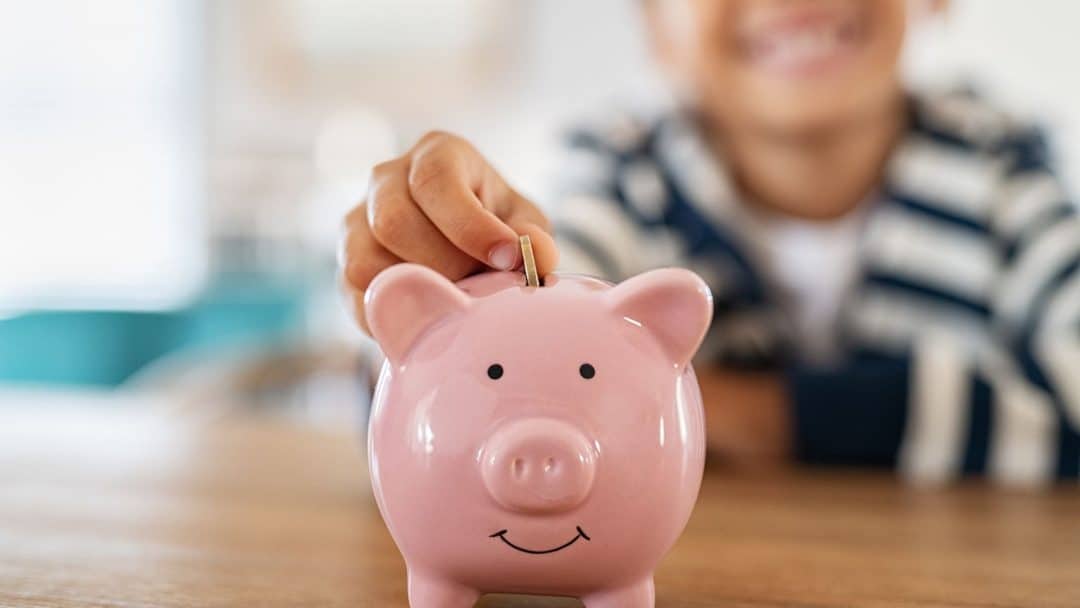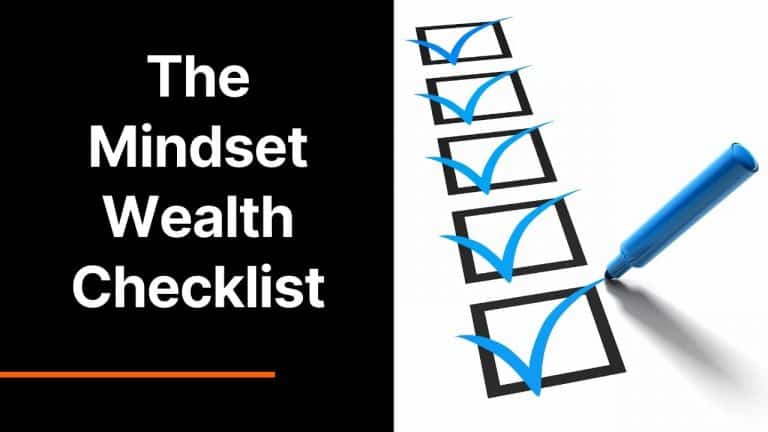How to Improve Your Relationship With Money
Do you ever feel like you have a love-hate relationship with money?
Like no matter how hard you try, you can never quite seem to get ahead.
If so, it’s time for a change.
In this post, we’ll explore different ways you can improve your relationship with money to start getting ahead.
What is Your Relationship With Money?
We all have a relationship with our money.
It’s just like any other relationship in our lives.
There will be ups and downs, but we need to learn how to communicate with our money, set boundaries, and work together towards common financial goals.
If you don’t know what your relationship with money is like, let’s go over a few unhealthy and healthy relationship examples.
What an Unhealthy Relationship With Money Looks Like
An unhealthy relationship with money can include impulse shopping, maxing out credit cards, and avoiding
It can look like never having a budget or savings plan. It can also look like being afraid to talk about money with your partner or spouse.
But money shouldn’t be a taboo topic. You should feel comfortable discussing financial goals and concerns with your partner.
If you’re not, that signifies an unhealthy relationship with money. This can lead to a stressful life and strain your relationships.

What a Healthy Relationship With Money Looks Like
A healthy relationship with money looks a lot different.
For starters, you have a budget, and you stick to it. You’re not afraid to talk about money with your partner. You discuss financial decisions together and work as a team to reach them.
You’re also not afraid to save money. You have an emergency fund for unexpected
In short, a healthy relationship with money is built on communication, trust, and respect.
Fear and Your Money Mindset
People who live in fear when it comes to money tend to avoid talking about the subject.
They’ll go out of their way not to look at bills. Don’t want to learn about
- Do you find yourself unaware of how much money you have in the bank?
- When asked how you have your money invested, do you shrug and mumble about how your spouse or parent takes care of that stuff?
- Are bills frequently late because you don’t want to deal with paying them?
Unfortunately, this unhealthy money
Avoiding the subject of money means you’re likely missing important milestones.
You probably can’t buy a house, send your children to college, or retire from your job until you get on top of your money situation.
Or maybe you have the opposite problem.
Love and Your Money Mindset
You love money and all the things it can buy for you. You’re always looking at the next gadget, car, or another item you can purchase.
You find yourself throwing money at every “investment opportunity” you can find, although many of them turn out to be pyramid schemes or other types of fraud.
This attitude means you’ve probably lost a few friends by talking about money too much.
You likely have a large amount of debt accumulated over the years, and while you have many plans to pay it off, you live in fear that one day the bills will become too much.
A lot of people find themselves ping-ponging between both of these mindsets.
They’re ready to spend money and invest in anything when things are going well. But, when these
Where Does Our Money Mindset and Attitude Come From
The truth is your attitude and beliefs about money come from many different places.
As each of us grows up, we’re affected by our life experiences differently. Each experience can influence how we perceive and deal with money.
For example, a lot of what you think about money is “inherited,” and you never had control of it.
Your parents or friends most likely influenced how you think about money. Specifically, your views on money are based on your parents, where you grew up, and the world in which you live.
You and Your Parents’ Relationship With Money
Some of us are raised in families where money is never discussed.
This can lead to a life of stress and uncertainty because we don’t know how to manage our finances. We might spend decades trying to fix unhealthy spending habits and avoid discussing money.
Others were raised in families where there was a lack of money and life was a struggle. This can lead to a feeling of scarcity when it comes to money.
And still, some of us were raised in families where money was no issue. Which can lead to entitlement or even a sense of superiority around money.
All of these experiences can impact our money decisions and relationship with money as adults.
That’s why it’s important to be aware of your personal money story. Once you’re aware of it, you can start to change it.
The Money Relationships of Your Friends and Social Circles
The people you associate with can impact your relationship with money in many ways.
For example, if you have friends who are always talking about the latest designer labels they’ve bought or the fancy vacations they’re taking, you might feel like you need to keep up with them.
Or, if your friends are always complaining about being broke, you might start to think it’s normal.
But, if you associate with people who have a positive relationship with money, you’re more likely to have a positive relationship with money.
So choose wisely who you surround yourself with.
Ask yourself if they’re an asset or a liability when it comes to your financial well-being. Because when you have the right people in your social circle, they can help you stay on track financially.
Is Your Relationship With Money Holding You Back?
If you’re unhappy with your current financial situation, it’s time to reassess your relationship with money.
- Are you making decisions based on fear or insecurity?
- Are you trying to keep up with the Joneses?
- Were you living beyond your means?
Answering these questions honestly can help you develop a healthier relationship with money. And that, in turn, can lead to a better financial future.
Because you’re not alone if you’re struggling with your relationship and don’t have good money habits right now. Many people have unhealthy relationships when it comes to money.
But it doesn’t have to be like that forever.
We can all change and improve our relationship with money.
Why is it Important to Change Your Money Story?
It’s important to change your money story because it’ll hold you back if you have a negative story about money.
Many of us have a negative relationship with money because we were raised to think money is evil. But that’s not true!
Money is a tool, and it’s neutral. It’s how we use money that matters.
So, if you want to improve your relationship with money, you need to change your money story.
How to Transform Your Relationship With Money
Transforming your relationship with money takes time, effort, and a lot of self-awareness.
But it’s financially worth it!

When you have a healthy relationship with money, you’re able to:
- Make better decisions
- Are less stressed
- Able to achieve your long-term financial goals
- Have more disposable
income to do whatever you’d like
Start By Analyzing Your Money Mindset
To transform how you think about money, you need to take some time and consider why you feel the way you do about money.
[snippet]Specifically, how do you feel when money comes to mind?
- Anxious?
- Tired?
- Happy?
- Excited? [/snippet]
Then, let’s look at some the reasons why you’d feel the way you do.
Did you have some traumatic event, or did a lack of material things while growing up impact your thoughts around money?
Were you rich or poor? How does that impact how you feel about money?
These are the questions you need to ask yourself because your relationship with money can reveal a lot about your personality.
For example, if you’re always trying to keep up with the Joneses, you might be competitive. Or, if you’re constantly worried about money, you might be a perfectionist.
Understanding your personality type will help you develop healthy habits around money.
4 Steps You Can Take to Fix Your Relationship With Money
- Talk about money openly and honestly. Discuss your goals, values, and concerns.
- Make a budget and stick to it. This will help you stay on track financially.
- Communicate regularly about your financial health and situation.
- Seek professional help if you need it. If you’re having trouble
managing your finances, talk to a financial planner or counselor who can help you get back on track.
Tips to Avoid an Unhealthy Relationship With Money
If you want to avoid having an unhealthy relationship with money, here are some things you can do:
Be Proactive and Always Be Learning
Maintaining a healthy relationship with money requires being proactive and always looking for ways to improve your financial knowledge. You can make better spending, saving, and
Be Mindful of Your Spending
It’s important to be mindful of your spending in order to maintain a healthy relationship with money. Make sure your spending aligns with your goals and values to stay on track financially.
Find Ways to Save Money
One of the best ways to maintain a healthy relationship with money is to find ways to save. Automating your savings can help you reach your financial goals while freeing up cash for other things.

Invest for The Long Term
Another key element of a healthy relationship with money is
Investing wisely allows you to grow your wealth over time.
Mastering Your Relationship With Money
Changing your money
But don’t expect change to happen overnight.
You’ll likely start with small goals, such as setting up a monthly budget or getting your minimum bills paid on time.
As you meet your small goals, you’ll find the motivation to take on bigger challenges and learn even more. And soon, you’ll find yourself paying off your smaller credit card debt and setting up a retirement plan.
Eventually, you’ll be out of debt and living life with a healthy savings account.
More importantly, you’ll notice how your attitude towards money and other people changes. As you slowly change and take charge of your money, you’ll start to see how money-related things now give you less stress.
For example, as you develop and stick to a budget, you’ll see that you’re worrying less about money.
As you keep track of how much you have in your savings and checking account, you’ll find yourself less distracted and less nervous when making a purchase.
Then, as you build your savings, you’ll have fewer worries about the future. You’ll become more secure knowing you have the money to pay for emergencies and major life events.
Now get out there and improve your relationship with money!






